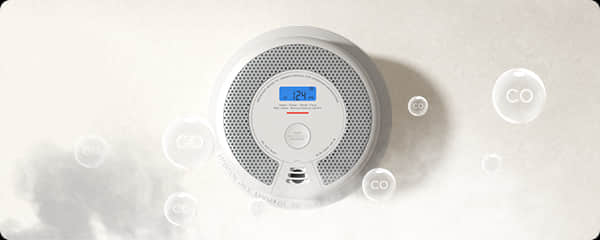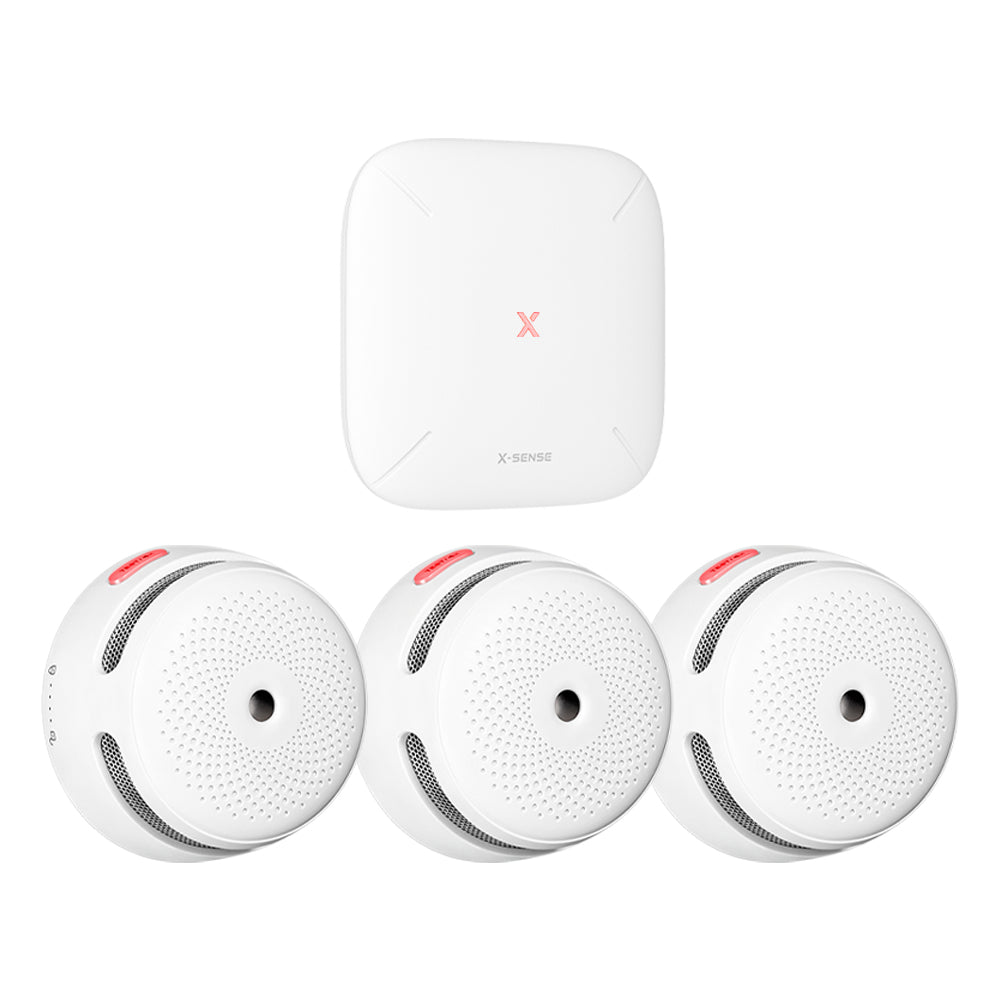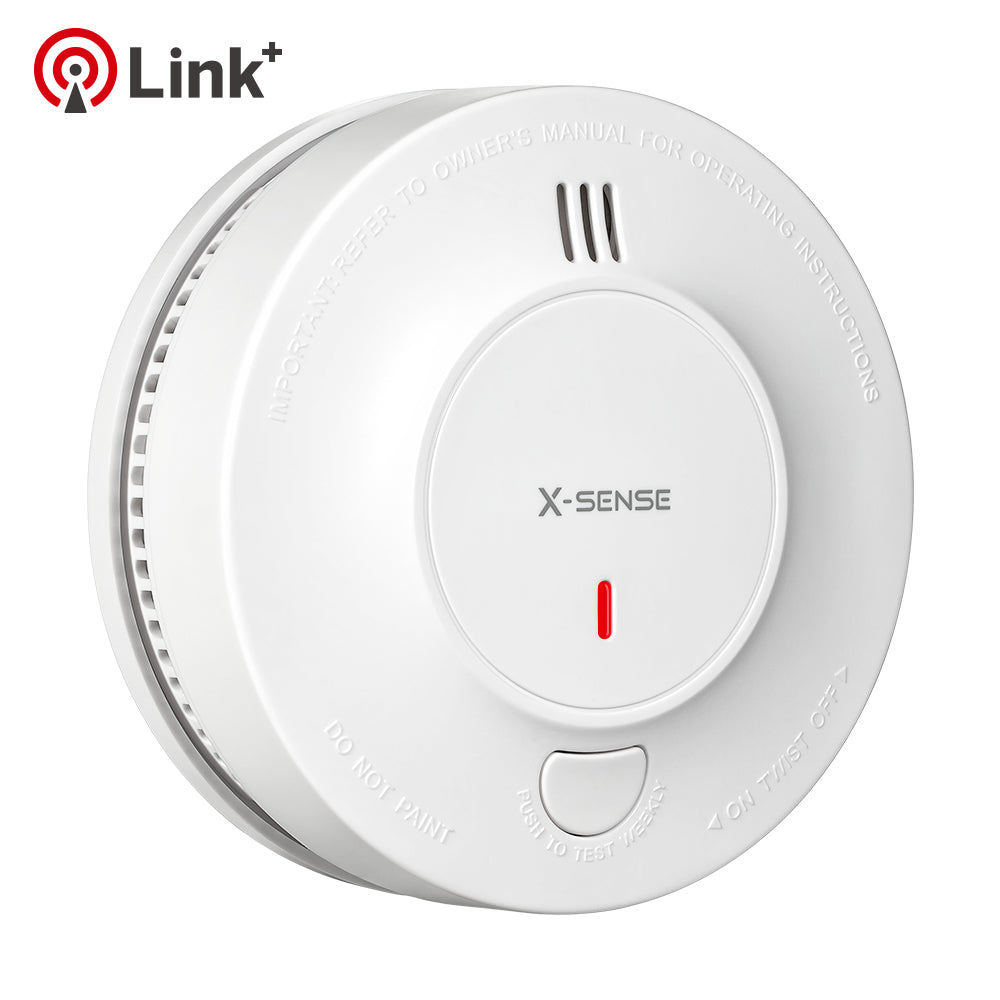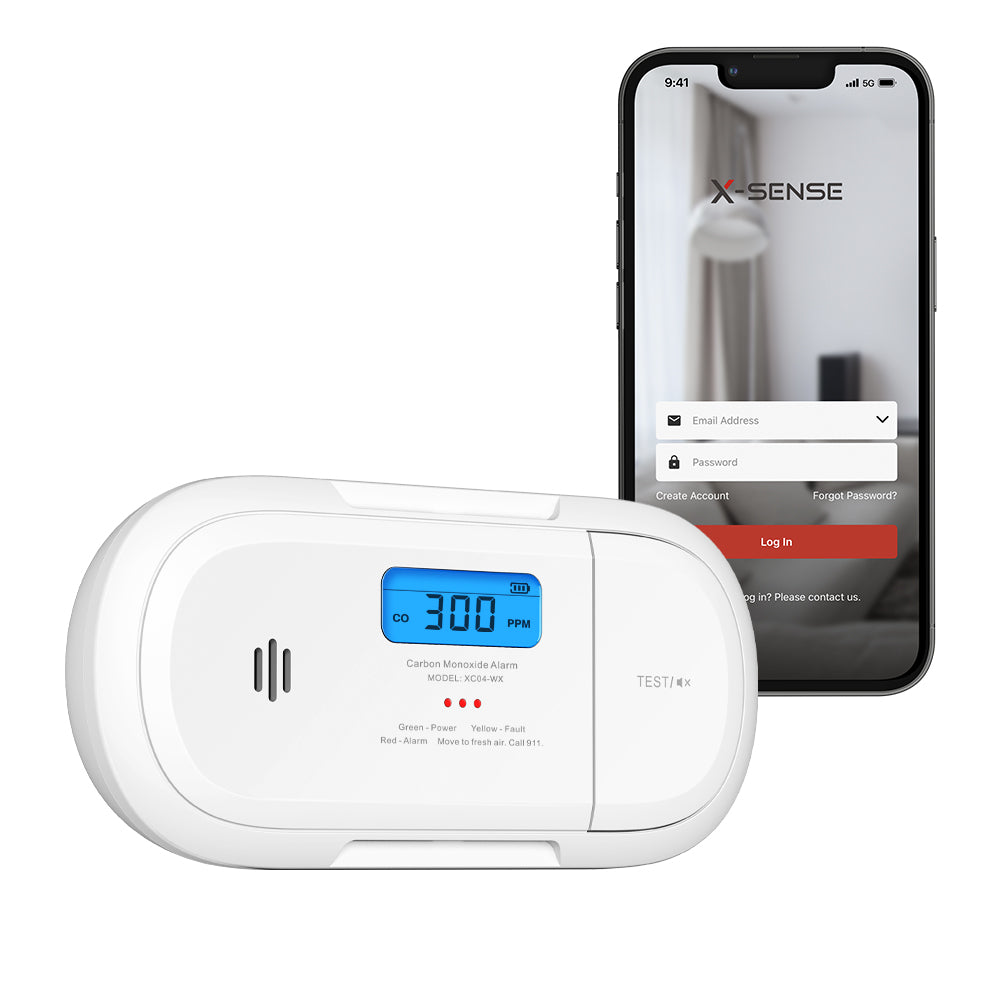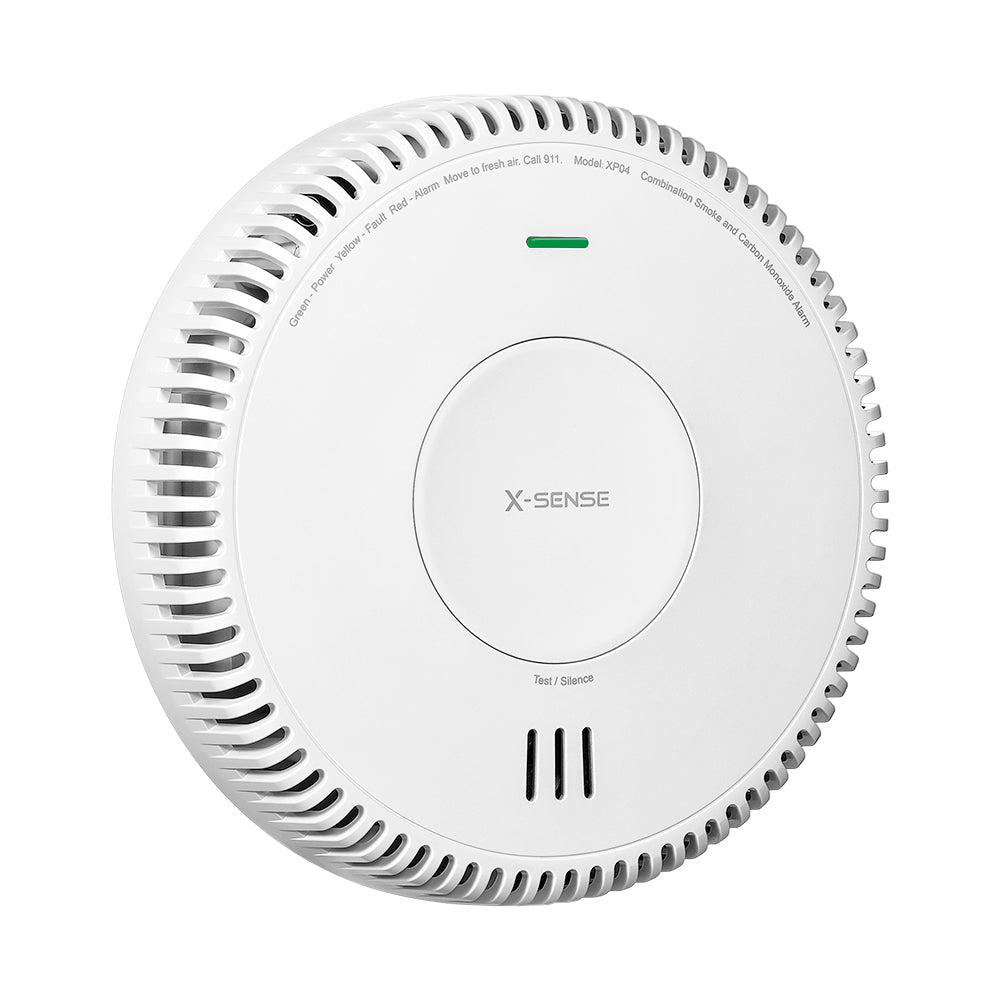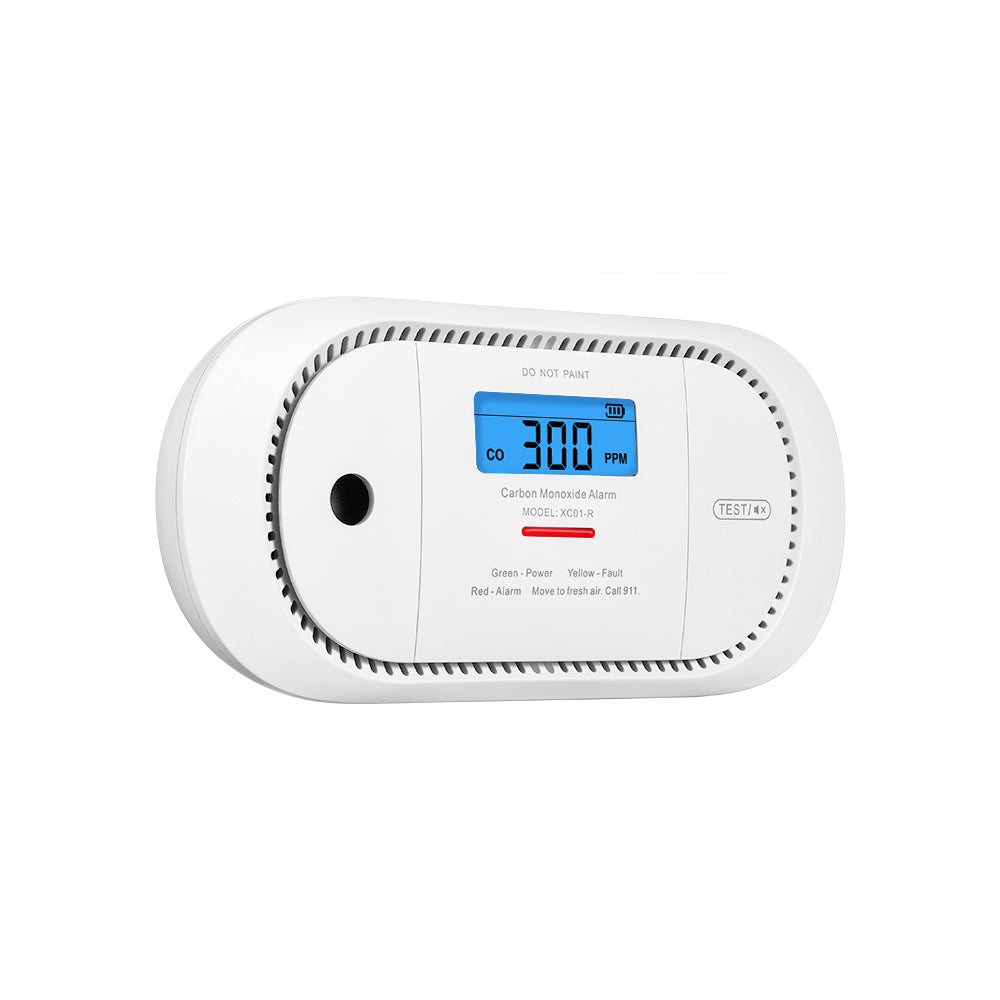Smoke Detector Fire Alarms FAQ
Fri, May 22, 2020
Smoke detectors are useful devices that sense smoke. They are designed to detect smoke before humans could, as a means of life and health preservation. Fires do not always begin in the daytime, but these devices can work 24/7 to safeguard you and your family. With a quick alarm system, such a device will wake you up if the beginnings of fire occur at night. Some of them go further to detect carbon monoxide before it causes bloodstream poisoning. This article will answer some of your most common questions on smoke alarms and carbon monoxide detectors.
1. How Many Smoke Alarms Should I Have, and Where Should I Put Them?
To answer this question, you need to take a look at how large your home is. How many bedrooms do you have? We often close our doors during bedtime. So, each bedroom should have a smoke alarm. Install smoke alarms in the hallways of every sleeping area. Don’t forget the attic, basement, and each level of your home. However, take care to keep these alarms at least beyond 20 feet distance from furnaces, stovetops, and other appliances that generally have to produce heat and fire. They should also not be installed in laundry rooms and bathrooms, because these places have a lot of humidity. The essential places to install alarms in are the sleeping areas. Most fire and smoke inhalation deaths occur during bedtime.
2. How to Make Sure the Smoke Alarms Working?
Smoke alarms come with test buttons. You don’t have to keep on pushing it. Just push the button once each month to listen if the alarm will go off. Keep each alarm installed and do not cover it with anything, or you can check how to cover your smoke alarms properly.
For those who live in apartment buildings, consult the building management before installing anything. This is to ensure that your connections will not affect the building’s own alarm system. The test should also ensure that your alarm has a working battery, Keep one at hand so that you can check if the alarm is either faulty or just require a change in batteries. Testing the batteries can also occur once a month, but the replacements can be done annually. This also depends on your test findings.
3. Why Would a Smoke Detector Go Off for No Reason?
Smoke alarms may give you a beep if the battery is low. However, there may be other reasons behind the false alarm beeps. Check the sensor chamber or the cover. They may be covered by dirt or dust. They can look clean on the outside. So, do not take that as a cue that your smoke detector is in excellent condition. Dust accumulation can happen under the cover.
To avoid false alarms happening this way, you can vacuum with a soft brush attachment. Have an electrician install the dust cover to protect and maintain cleanliness.
Other causes of false alarms are loose connections and power interruptions. While you may not have control over power interruptions, you can ensure that connections are correct and sturdy. For power interruptions, be aware of the power plant’s usual schedule. Please do not ignore the alarm even if you suspect it is false.
Ordinary occurrences in your homes may also set off your alarm. Humidity from the bathroom, smoke from cooking, and alarms being installed near the furnace can create false alarms. This is why it is advised that alarms should be installed at least 20 feet away from some rooms in the house. If your home is too small – motorhome or otherwise – for that guideline, just try to place the smoke alarm as far as possible from fuel-burning sources.
4. How Long Will a Smoke Alarm Last?
The US Fire Administration has cited a life span of 8 to 10 years for smoke detectors. So, you have to be aware of your smoke alarms’ ages. After that duration, you should replace not just a part of the alarm but the whole unit. You can find the unit’s manufacturing date inside of it. Just to be on the safe side, discard and replace the unit if you don’t see a date. If the alarm is newly purchased, you should check on its box for clues. The unit’s serial number may provide clues as to when it was manufactured.
5. Can I Install Interconnected Smoke Alarms?
Yes, you should install interconnected smoke alarms. However, have a professional do the job to make sure that you are following electrical codes. This may be the best possible setup but you don’t want to deal with complications unless you are an electrician. With such a setup, the alarms all sound off once one detects smoke. This simple setup is becoming more common in newer homes because of its effectivity.
6. What Are the Different Types of Smoke Alarms?
While several brands may offer their own smoke alarm variants, there are only two main ones – ionization and photoelectric. Ionization alarms are quicker to activate as a response to fast moving flames. Flames like these are more likely ignited by flammable liquids and open flames. They easily lap up at wood and paper. On the other hand, photoelectric alarms are designed to quickly detect smoky fires. Smoky fires are ignited by instances, such as leaving a lit cigarette unattended.
To choose between the two, you have to think of the greater possibility in your home. You ma also invest in smoke alarms that combine them. These are called dual sensor smoke alarms. This is what the USFA recommends, as well.
In houses where people with hearing disabilities live, a flash and vibrate feature should be added. These special alarms may incorporate the use of strobe lights, for example.
7. What Type of Smoke Alarm Should I Buy?
Buy a dual sensor alarm, with ionization and photoelectric capability. Have a technician install interconnected alarms in your home. When purchasing alarms, check if there is an Underwriters Laboratories (UL) label or other recognized certification. To further ensure that you are buying something that works well, go to reputable sellers and not back alley shops. Your safety is very important.
There are several varieties of smoke alarms. In the end, it is best to buy a dual sensor model. This model will help detect all sources of smoke and fire in the home. It should be interconnected with others like it so that an alarm sounding off in one room can reverberate in other parts of the house.
A professional electrician should install the alarms. Buying the alarms and installing them should not be the end of it, though. Every month, test the unit and the battery if they still work. Replace all alarms that do not sound during testing, unless you just need to replace the battery. A low battery will sound off a little chirp. Long life batteries are supposed to last for 10 years. At that point, the whole unit should be replaced anyway because smoke alarms have a lifespan of 8 to 10 years. Discard when they reach that age or do not have any manufacturing date on the unit. So, it is best to inspect the unit at the store or ask questions about it.
Of course, good units installed will be for nothing if the people in the house do not know how to respond to an alarm. Have a meeting with everyone in the house or building to create a plan of action.
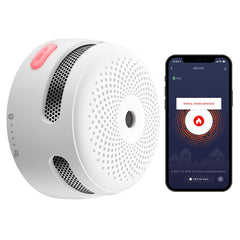
X-Sense XS01-WT Wi-Fi Smoke Detector
- You’ll receive a real-time notification on your smartphone whenever an alarm sounds.
- Continuously checks its battery status and Wi-Fi connection.
- Allows you to silence any annoying alarms via the app.
- Upgraded photoelectric sensor significantly increases the alarm’s sensitivity.
- Easy to install the smoke alarm and connect it to Wi-Fi in a few minutes.
$36.99 $39.99


